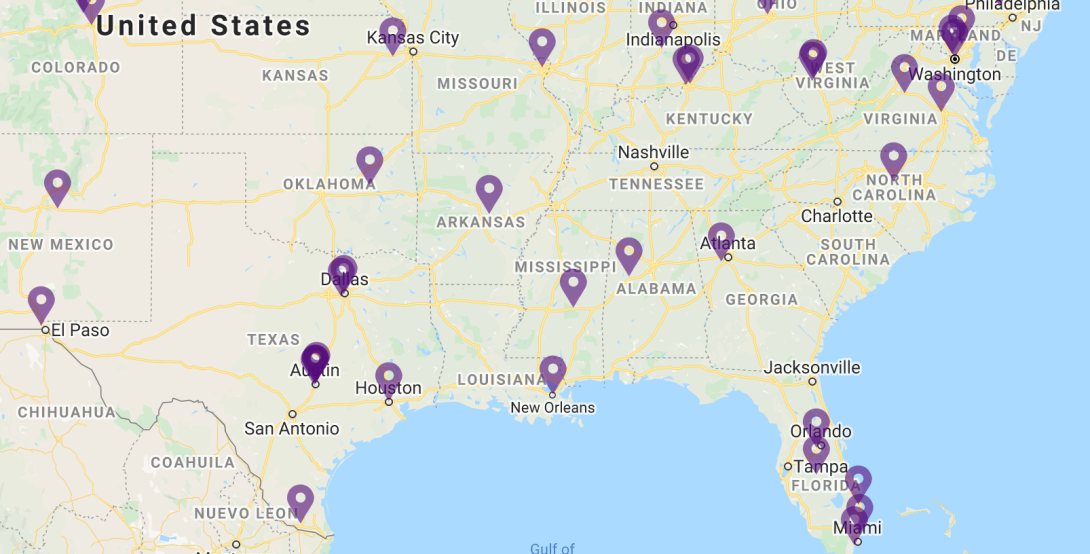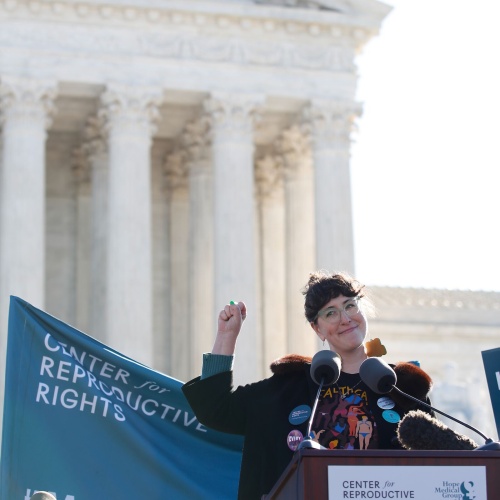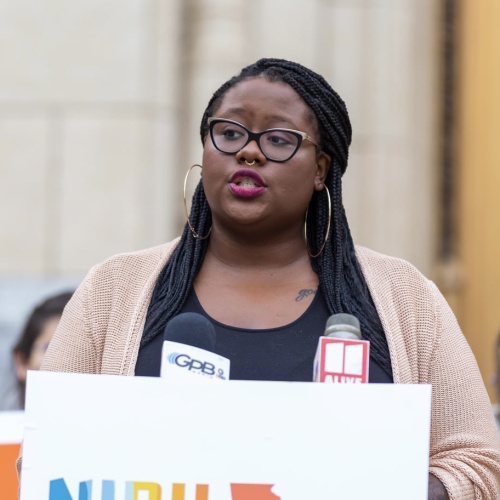VOICES: The future of abortion access lies with us

This map showing the location of abortion funds across the South is from the National Network of Abortion Providers. For an interactive version, click here.
For Southern abortion funds, working to get people abortion care has often felt like pushing against a tidal wave. But since the pandemic hit in March, the storms our clients are facing are like nothing we've seen before.
Our work has always been grounded in the urgent need to meet people where they are. The clients we work with at the New Orleans Abortion Fund (NOAF) and Access Reproductive Care-Southeast (ARC-Southeast) are often people who are struggling financially, Black and brown, LGBTQ, young people, people who are already parenting, and folks who live in rural areas. They are often hit hardest when the Louisiana and Georgia legislatures try to ban abortion and cut funding for our communities. They're also people who have lost employment, wages, and health coverage due to the pandemic, who are hit the hardest by inequities in the health care system and economy.
Abortion funds like ours exist so that anyone who wants to end a pregnancy can get the abortion care they want and need. When the pandemic hit, the immediate impacts on clinic closures, jobs, and means of travel meant that people needed more practical support, not just the funds for abortion. NOAF and ARC-Southeast collaborated to strengthen networks of support for our clients, from transportation to child care to lodging, and even travel between our states. The support we created was instrumental in ensuring that people in Louisiana and the Gulf South could actually access care. As clinics see fewer patients every day, have longer waiting periods, and experience temporary closures and natural disasters like Hurricane Laura, Louisiana is sending more and more clients on six-hour drives to the Atlanta area to receive care. This is what building power in the South looks like — working side by side so our clients can get the care they need when they need it.
This summer, during the height of the pandemic, the Supreme Court upheld its past ruling in June Medical Services v. Russo, which prevented the state of Louisiana from shutting down our clinics. This decision was far from a complete win. It upheld Louisiana's meager status quo of three clinics for the 8,000 to 10,000 people who seek abortions each year. Still, across the country, hundreds of laws restricting or banning abortion care have passed in the last decade alone. In Georgia, Gov. Brian Kemp signed a law last year that would have banned abortion at six weeks, before most people even know they're pregnant. The law was struck down earlier this year but not before causing fear and panic among Georgians seeking abortion, leaving them to wonder where they could get care. Cruel laws like these have had the cumulative effect of making abortion access in the South confusing, complicated, often disheartening, and always expensive.
Legal battles like June v. Russo — those before it and those surely to come — are just fighting over crumbs. When it comes to abortion, fighting for legality alone will never be enough. The reality is, nearly all barriers to abortion access are uniquely compounded and made more difficult by the racist systems and geographies of the South — whether it's clinics only being available in urban centers, the racialized economic oppression of our callers and our communities, or the dismantling of supportive social systems.
If 2020 — a tidal wave of its own — has taught us anything, it's that power doesn't come from politicians or from the courts, but from our communities. Here in the South, we know the power of community comes from helping each other. Building the systems we need to care for ourselves, together, is eminently Southern and rooted in our radical ancestors and forebearers. And building empowering partnerships and processes to facilitate getting abortion care in environments where care is scarce is core to the revolutionary and affirming work of abortion funds.
There is a future where all of us can get the abortion care we need no matter where we live, when we need it — a future where laws support each of us, where our decisions are met with love and support, and everyone can raise their families and watch their children grow up safely. And we are building that future right now, right here in the South. Join us.
Tags
Steffani Bangel
Steffani Bangel [she/her] is the executive director of the New Orleans Abortion Fund, an organization that defends abortion access in Louisiana and challenges economic injustice by providing compassionate and empowering assistance to folks who are unable to fully fund their health care. Her work straddles radical movement building, compassion-centered client services, and strategic policy advocacy.
Quita Tinsley Peterson
Quita Tinsley Peterson is a Black, queer femme who writes, organizes, and fights for reproductive justice and queer liberation in the South. They currently serve as the co-director of Access Reproductive Care – Southeast, a reproductive justice organization that funds abortion and practical support for Southerners seeking care.

